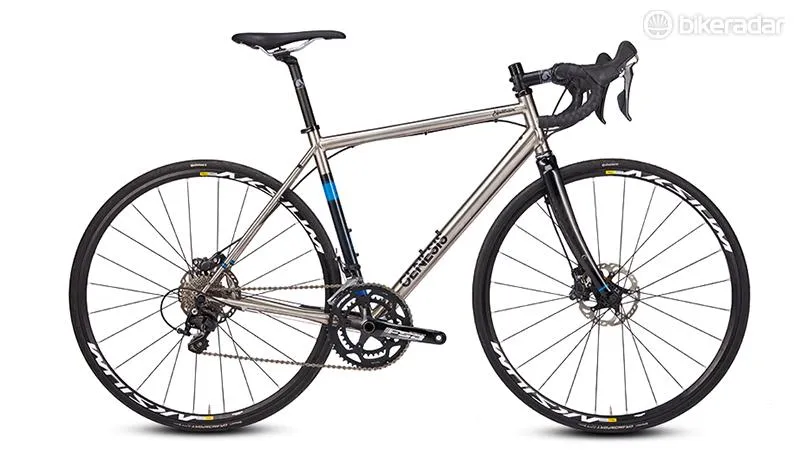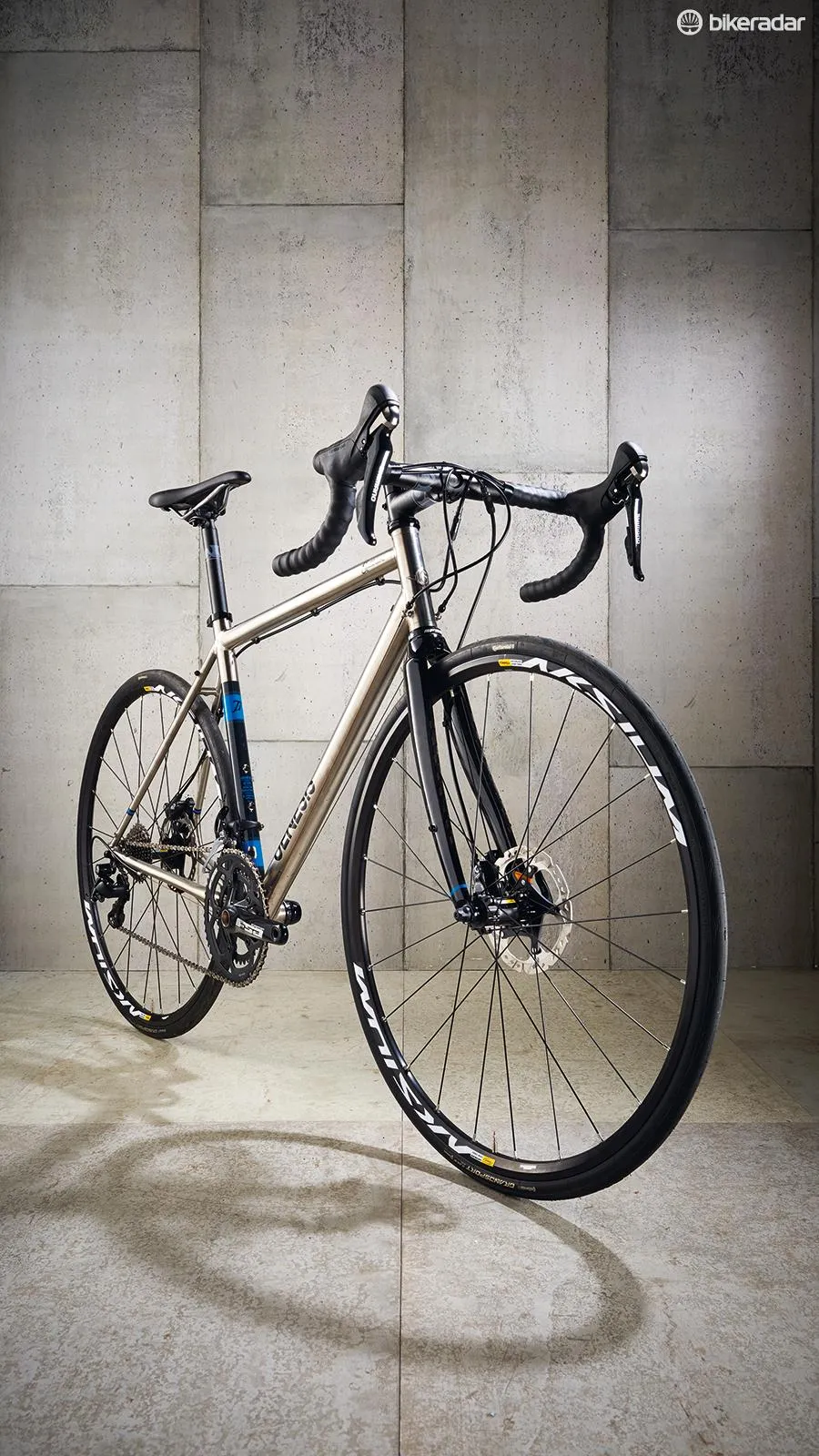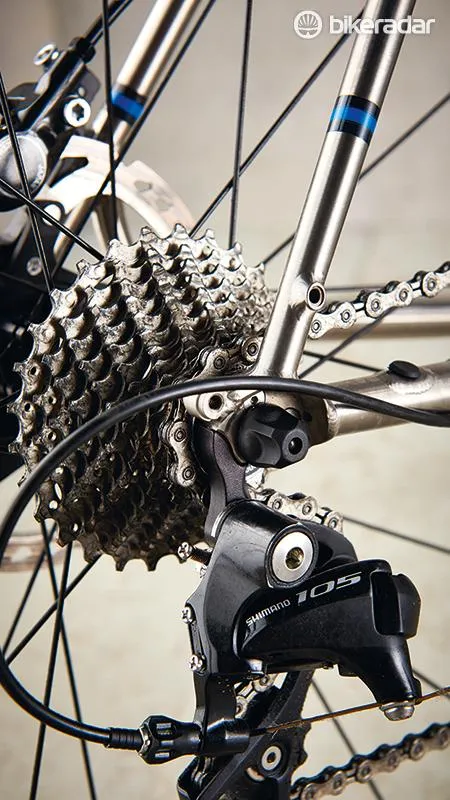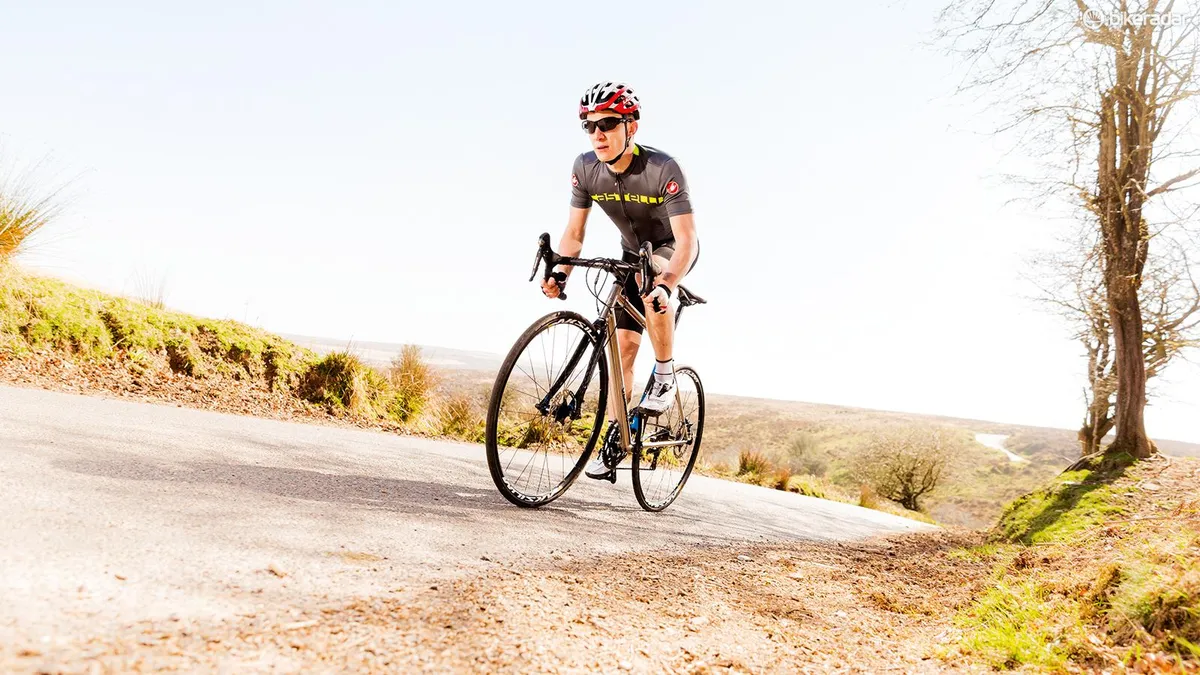Genesis bikes need little introduction. Their cheerfully capable and incurably British designs are ubiquitous on UK city streets, and they have a presence in virtually every sector of the cycling landscape.
- Highs: Versatility for all weathers and all types of riding; nice looks
- Lows: Average ride quality and more corners cut on the spec than we'd like
- Buy If: You want a bike for all seasons and you aren't hung up on marginal gains
The Equilibrium first appeared as a budget steel machine which, with keen pricing and provision for mudguards, became a popular second string to the bow of riders seeking a steed for less clement weather. Since its release, innumerable variations have been added to the line-up to suit a range of budgets, with various tubesets and component specs on offer.
The Disc Ti on test here is the most expensive of the lot. As the name implies, this one is titanium, of the ever-popular 3Al/2.5V variety. (That's an alloy with three percent aluminium and 2.5 percent vanadium, for the metallurgy geeks out there.) Like its stablemates, it offers generous clearances and a complete set of rack and mudguard mounts, right down to a useful downwards-facing boss on the seat stay bridge.
The rear brake caliper is mounted outside the rear triangle, which will get in the way of some guards, but it shouldn't present any great obstacle. Further adding to the versatility, the frame has cable ports for electronic groupsets.
A significant slope to the top tube aside, the Equilibrium is quite a traditional looking frame. Its chainstays pinch inwards for extra tyre clearance and then bulge out again for stiffness, but by and large it's a design composed of straight lines, right down to the un-tapered alloy fork steerer that mates with a conventional external headset. Some tasteful graphics do mark it out from the herd a little though, and with hydraulic disc brakes, there's no mistaking that this is a modern machine.
Genesis has outfitted the Equilibrium with the latest Shimano RS685 levers, which combine the slick mechanical shifting of its 11-speed groupsets with one-finger braking on disc rotors. The hoods have slightly more of a hump than standard STIs, but they're far more elegant than the lumpy first generation of hydraulic levers. Chain-shoving comes courtesy of 105 derailleurs, while the chainset is a rather plain (and somewhat cheap looking) FSA Gossamer that finds a home in a spanner-friendly threaded bottom bracket.
Wheels can make or break a bike aesthetically, and we think the Mavic Aksium One Discs look great with their distinctive angular rim profile. In weight terms they are very much at the entry level end of the spectrum, but we're not convinced that's hugely important on a bike like this – it's no live wire.
The Equilibrium is a perfectly acceptable place to sit, but a sense of urgency is absent. The bike feels quite at home cruising along and smelling the flowers, but aggressive out-of-the-saddle efforts on the climbs are not hugely rewarding. There's enough flex through the cranks and through the frame itself to dampen your enthusiasm, and this lack of rigidity doesn't translate into the ultra-smooth ride you might expect either – it's only averagely comfortable, something that's not helped by a stock saddle that feels cheap and unsupportive, mounted to a basic alloy seatpost.
Genesis pitches the Equilibrium with the line "this is probably your ideal road bike" and on paper, it's not hard to see why. Its versatile spec makes everything from commuting, to training, to all-weather touring a possibility. We're just didn't find its ride quality very engaging, and in a highly competitive market we'd like to have seen fewer savings made on the build list.





